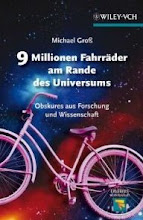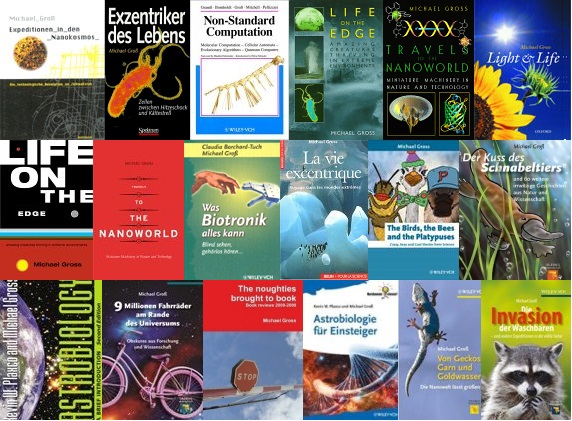-- last updated 25.06.2015 --
NB: for more recent updates see my new blog post on this issue.
I've been catching up on some European movies from the last years that for some reason or another didn't get a cinema release in the UK (criteria: no release date listed on IMDB
and film didn't show up here). There is a growing collection of recent films that I really liked and that didn't get shown in this country, so I'm compiling a commented list here:
Mädchen Mädchen (Girls on top) - Germany 2001, Dennis Gansel.
Juana la loca - Spain 2001, Vicente Aranda - it's just a straightforward period drama based on the same events as Gioconda Belli's more ambitious novel
El pergamino de la seducción (which I reviewed
here) but I love the story so it doesn't harm to have a second view on it. It's nicely done and should interest people outside Spain too. (It has in fact been released in the US as "Mad Love", but not here.)
800 balas (800 bullets) - Spain 2002, Alex de la Iglesia - surprisingly brilliant film, see my
review.
El otro lado de la cama (The other side of the bed) - Spain 2002, Emilio Martínez Lázaro - starring Paz Vega, Natalia Verbeke.
Suite Habana (Havana Suite) - Cuba 2003, Fernando Pérez - not European, but still interesting.
L'esquive (Games of love and chance) - France 2003, Abdellatif Kechiche - only shown at the London film festival.
Dot the i - UK 2003, Matthew Parkhill - this one puzzles me, actually, it's made in Britain, with funding from UK film council, in English (though with stars better known in Spanish speaking countries), all nipples carefully covered up, and it still went straight to DVD (more
here).
Tout le plaisir est pour moi (The pleasure is all mine) - France 2004, Isabelle Broué, starring Marie Gillain - comedy around libido lost and found, a bit painting by numbers and too americanised for my taste, but apparently not enough to get a UK release.
En la cama - Germany / Chile 2005, Matías Bize
starring Blanca Lewin, Gonzalo Valenzuela - the film that inspired Julio Medem's "Room in Rome" (2010, see below).
See my
review.
Melissa P - Italy / Spain 2005, Luca Guadagnino - a difficult topic handled tactfully, see my
review.
Ensemble c'est tout - France 2007, Claude Berri - ok, I wasn't really overwhelmed by this one, see my review of the book (by Anna Gavalda) with post-script on the film
here. The film was only shown at a festival here and hasn't even seen a DVD release (my DVD is from Germany).
Caótica Ana - Spain 2007, Julio Medem - maybe not his best work but still worth watching, see my
review here.
Les anges exterminateurs - France 2006, Jean-Claude Brisseau - although part one of the trilogy, Les choses secretes, was shown in UK cinemas, this second part and the final one, A l'aventure, weren't.
Tangerine - Germany 2008, Irene von Alberti - German musicians try and fail to connect with the culture of Morocco ...
A l'aventure - France 2008, Jean-Claude Brisseau - third part of the trilogy, of which only the beginning, Les choses secretes made it to UK cinemas.
LOL (Laughing out Loud) - France 2008, Lisa Azuelos - a teenage comedy with a twist, as Sophie Marceau, who shot to fame with La Boum in the 80s, plays the mother of the lead girl this time round. Looking this up on IMDB, I found out that a US remake starring Miley Cyrus and Demi Moore is due to be released on 1.6.2012. Oh, and there hasn't even been a DVD release in the UK, another movie I had to import from Germany.
Française -France 2008, Souad El-Bouhati - shortish film about being a foreigner and choosing your country, starring Hafsia Herzi from
Couscous (La graine et le mulet), review to follow.
Soul kitchen - Germany 2009, Fatih Akin - review to follow.
Castillos de cartón - Spain 2009, Salvador García Ruiz - charming film based on novel by Almudena Grandes, about three art students in 1980s Madrid who find their ways in art, love, and life. See my
review of the UK DVD edition trying to mis-sell it as porn.
Je te mangerais - France 2009, - girl-on-girl obsession complete with harrassment and a background of classical music. Love the setting (in Lyon) and the views, but there are some disturbing things going on that aren't really addressed. Also, the link between emotions and their musical expression wasn't easy to catch for mere mortal non-pianists like me. Went straight to DVD in the UK in 2010 (title: Highly Strung, cert. 15).
Now & later - USA 2009, Philippe Diaz - free love vs. the power of military and financial oppression, heart-warming stuff, read my review
here.
Mentiras y gordas (Sex, party & lies) - Spain 2009, Alfonso Albacete - superficially, this is sex and drugs and techno all the way through, so don't be surprised at the knee-jerk reaction from some quarters and the 18 certificate on the DVD. If you can look beyond that, however, there are interesting subtleties (the lies are in the title for a reason), characters likeable with all their flaws, and a cautionary tale about the dangers of drugs and falling in love.
UPDATE December 2023: rewatched this after realising that it features a young Ana de Armas (who since then moved on to Hollywood and played Marilyn Monroe). Hadn't remembered much after 14 years, so I had great pleasure in rediscovering it.
Happy Few - France 2010, Antony Cordier - starring Elodie Bouchez - I missed La vie rêvée des anges when it came out, and generally hadn't seen a movie with Bouchez since Les roseaux sauvages (1994), so I made a note regarding this one when I heard about it in France. Needless to say, it didn't get a UK release (not even as DVD) so I imported the DVD from Germany. One might question whether the news that two couples have merged into a foursome is material enough to fill two hours, but I really liked the general feel and atmosphere of it.
L'âge de raison - France 2010, Yann Samuell - starring Sophie Marceau - what happens if the letters a clever 7-year-old girl writes to her future, 40-year-old self actually get delivered? Good question, slightly muddled in the answer but still interesting and moving to a degree. Further proof that de-frenching French films by bringing in a bit of English dialogue and leaving out all nipples doesn't guarantee cinematic release in the English-speaking world. Neither does the presence of a huge star like Marceau ... It was shown in cinemas in Germany, where a DVD is available under the title Vergissmichnicht.
Balada triste de trompeta - Spain 2010, Alex de la Iglesia - shown at Edinburgh Film Festival only.
A complex and difficult movie on the trauma caused by the Spanish civil war, read my review
here
Vénus noire - France 2010, Abdellatif Kechiche - epic and profound biopic of an African woman shown around as "Hottentot Venus" in European cities in the 19th century. See my review
here
Mes chères études - France 2010, Emmanuelle Bercot - now this alternative approach to student finance might have caused scandal around here, so better not show it.
678 / Les femmes du bus 678 - Egypt 2010, Mohamed Diab, starring Nahed El Sebai, Boushra, Nelly Karim - very timely and relevant film on the everyday harassment of women, see my review here.

still from "Habitación en Roma": official site.
Habitación en Roma (Room in Rome) - Spain 2010, Julio Medem - read my review here.
I love Périgord - France 2011, Charles Nemes – it’s a cliché-laden comedy about an Anglo-French culture clash and I wouldn’t normally make a fuss about it, but given the topic, a no-show in UK cinemas might of course be read as censoring the opinion of the other side in this age-old cultural conflict.
Q - France 2011, Laurent Bouhnik – What if relationships between people were driven by rampant female desire, what might this alternative to the testosterone-soaked world we live in look like? The (male) writer/director seems to think that it would be a better world, as the desire of the female protagonist, although a bit disconcerting at first, ends up being a force for good, fixing troubled relationships and strengthening the community. Sadly, censors and marketing people are unable to ignore the bare chests for long enough to work out what a film is actually about, so we have another interesting film that didn’t get a UK release and went straight to DVD with a blurb that essentially tries to sell it as posh porn. When will they ever learn?
Memoria de mis putas tristes - Mexico/Denmark 2011, Henning Carlsen - lovely adaptation of Gabriel Garcia Marquez' eponymous short novel from 2004. Review to follow.
Camille redouble (Camille rewinds) - France 2012, Noémie Lvovsky - Charming if slightly illogical time travel story featuring the director in the lead role. It was - released in around a dozen countries but no UK date in sight.
La fille de nulle part - France 2012, Jean-Claude Brisseau - this low-budget ghost story looks like poor old Brisseau is now reduced to filming in his own flat and playing the lead himself, but it is still interesting.
Mapa para conversar (A map for love) - Chile 2012, Constanza Fernandez, starring Andrea Moro, Mariana Prat, Francisca Bernardi - three women in a cute little chamber piece mostly set on a small boat. Restrictions clear the mind, as one of the characters says. Available on DVD from the lovely peccadillo pictures.
PS: I am, of course, a bit biased in favour of Spanish and French cinema, but I'm sure there are similarly neglected films from other European countries, and indeed from around the world as well. I'll also acknowledge bias towards vaguely intelligent films, which excludes some German comedies that were extremely successful on the domestic market but didn't get exported.
"
Endangered List" of films that may or may not end up on the list above (as I haven't seen them yet, and/or they may still turn up):
Flores raras (Reaching for the Moon) - Brazil 2013, Bruno Barreto
Landes - France 2013, François-Xavier Vives, starring Marie Gillain
Ayer no termina nunca (Yesterday never ends) - Spain 2013, Isabel Coixet - shown at the Berlin International Film Festival 2013, and at the London Spanish Film Festival 2013
Una pistola en cada mano - Spain 2012, Cesc Gay - Shown in Germany (Ein Freitag in Barcelona), and at the London Spanish Film Festival 2013.
Die Vermessung der Welt (Measuring the world) Germany 2012, Detlev Buck.
Klip (Clip) - Serbia 2012, Maja Milos
Weil ich schöner bin - Germany 2012, Frieder Schlaich
El amigo aleman (The German friend) - Germany, Argentina 2012, Jeanine Meerapfel
3 - Uruguay, Argentina, Germany 2012 - Pablo Stoll - oops, there are too many movies called 3, I was looking for this one and first found the one below, and got all confused.
Tres - Ecuador, Argentina, Germany 2012
3 Zimmer/Küche/Bad (Move) - Germany 2012
Baad el Mawkeaa (After the Battle) - France / Egypt 2012
Después de Lucía - Mexico / France 2012
A perdre la raison - Belgium 2012, Joachim Lafosse, starring Emilie Dequenne
Buscando a Eimish - Spain 2012, Ana Rodríguez Rosell, starring Manuela Vellés, Emma Suárez - shown at the London Spanish Film Festival 2012
Joven y alocada - Chile 2012, Marialy Rivas
Lo mejor de Eva - Spain 2011, Mariano Barroso - starring Leonor Watling, Adriana Ugarte
Un été brûlant - France 2011, Philippe Garrel - starring Monica Bellucci
Violeta se fue a los cielos (Violeta went to heaven) - Chile 2011, Andrés Wood - a biopic of the Chilean folk singer, song writer Violeta Parra
Graba - Argentina 2011
Lo contrario al amor - Spain 2011 - shown at the London Spanish Film Festival 2012
Verbo - Spain 2011 - shown at the London Spanish Film Festival 2012
Karen llora en un bus - Colombia 2011
Abrir puertas y ventanas (Back to stay) - Argentina 2011, Milagros Mumenthaler
La chispa de la vida (As luck would have it) - Spain 2011, Alex de la Iglesia
Poulet aux prunes (Chicken with plums) - France 2011, Marjane Satrapi
3 - Germany 2011, Tom Tykwer
I phone you - Germany 2011, Dan Tang
Almanya - Willkommen in Deutschland - Germany 2011, Nesrin Samdereli, Yasemin Samdereli
Amador - Spain 2010, Fernando Leon Aranoa, starring Magaly Solier
Le sentiment de la chair - France 2010 - (slightly scared of this, plot summary sounds like it may be taking "anatomical detail" a little bit too literally?)
Marieke, Marieke - Belgium 2010, Sophie Schoukens
Die Fremde (When we leave) - Germany 2010, Feo Aladag - starring Sibel Kekilli
Le nom des gens - France 2010, Michel Leclerc
Flamenco, flamenco - Spain 2010, Carlos Saura -
Un homme qui crie - France/Belgium/Chad 2010, Mahamat-Saleh Haroun -
Joseph et la fille - France 2010, Xavier de Choudens - starring Hafsia Herzi, Jacques Dutronc
La fille du RER (The girl on the train) - France 2009, André Téchiné, starring Emilie Dequenne
Eloise - Spain 2009, Jesús Garay
Io, Don Giovanni - Spain / Italy 2009, Carlos Saura
Anonymes (Buried secrets) - France 2009, Raja Amari - starring Hafsia Herzi
El último verano de la Boyita - Argentina 2009, Julia Solomonoff - shown at the
Viva Festival, Manchester only.
La Yuma - Nicaragua 2009, Florence Jaugey -
El juego del ahorcado - Spain 2008, Manuel Gómez Pereira - starring Adriana Ugarte
La journeé de la jupe (Skirt day) - France 2008, Jean-Paul Lilienfeld - starring Isabelle Adjani, who won a César for this role
L'aube du monde (Dawn of the world) - Iraq, France, Germany 2008, Abbas Fahdel - starring Hafsia Herzi
Le premier venu (Just anybody) - France 2008, Jacques Doillon -
Arráncame la vida (Tear this heart out) - Mexico 2008, Roberto Sneider - Adaptation of Angeles Mastretta's novel, shown at the
Viva Festival, Manchester only.
Les filles du botaniste - France / Canada (2006) but dialogue in Mandarin
Short order (Life is a buffet) - Ireland, Germany, UK 2005 - starring Emma de Caunes
Perder es cuestión de método - Colombia 2004, Sergio Cabrera - an adaptation of Santiago Gamboa's eponymous novel
Petite Lili - France 2003 - starring Ludivine Sagnier; an adaptation of Chekhov's The Seagull, apparently
Solino Germany 2002, Fatih Akin
Finally, films from the watch list that did get a UK release after all, hooray:
Alceste a bicyclette (Bicycling with Moliere) - France 2013, Philippe Le Guay - Note the predictable replacement of the name of Alceste (the lead character in Le misanthrope) with the author's name in the international title. UK release on July 6th, 2014.
El artista y la modelo - Spain 2012, Fernando Trueba, starring Claudia Cardinale - one-off showing at the London Spanish Film Festival's Spring Weekend, April 2013, then release of around a dozen copies in September 2013, details here
La vie d'Adèle (Blue is the warmest colour) - France 2013, Abdellatif Kechiche - winner of the Palme d'Or at Cannes 2013, and I was still worried it might not get a release here. That's how bad things have become. It was released in November 2013.
Paris-Manhattan - France 2012, Sophie Lellouche - French reflections on Woodie Allen - UK release 5.7.2013, apparently, although it hasn't shown up in our local cinemas. Got DVD via Germany and really liked it.
Les femmes du 6ème étage (The women on the 6th floor) - France 2010 - UK release in July 2012
Elle s'appellait Sarah - France 2010, Gilles Paquet-Brenner - starring Kristin Scott-Thomas
UK release 5.8.2011 as "Sarah's Key"
Further reading:
- An interesting piece from a movie professional who had a few fights with the UK censors appeared in the Guardian film section on 1.10.2010.
- 100 years of film censorship (slash classification): Kira Cochrane in the Guardian on the BBFC's anniversary, 27.7.2012.
- BFI statistical yearbook 2013: According to the country of origin stats on page 17, 151 (23%) of the movies released in the UK in 2012 came from other European countries.
Also see the chapter 5, "Specialised Films", which includes stats on foreign language films. Apparently, 230 films in 32 foreign languages were released in 2012, accounting for 35.5% of all releases but taking only 2% of the box-office. I'll prepare a separate blog entry on these stats.


















